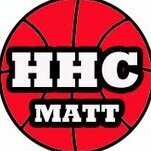Coaches that you think should be on Nebraska's list, if this trend continues (2017)
-
Similar Content
-
- 1 reply
- 498 views
-
- 62 replies
- 3,707 views
-
- 79 replies
- 7,790 views
-
Coaches that you think should be on Nebraska's list, if this trend continues 1 2 3 4 91
By Nebrasketballer,
- 2,274 replies
- 199,389 views
-
-
Recently Browsing 0 members
- No registered users viewing this page.





Recommended Posts
Join the conversation
You can post now and register later. If you have an account, sign in now to post with your account.